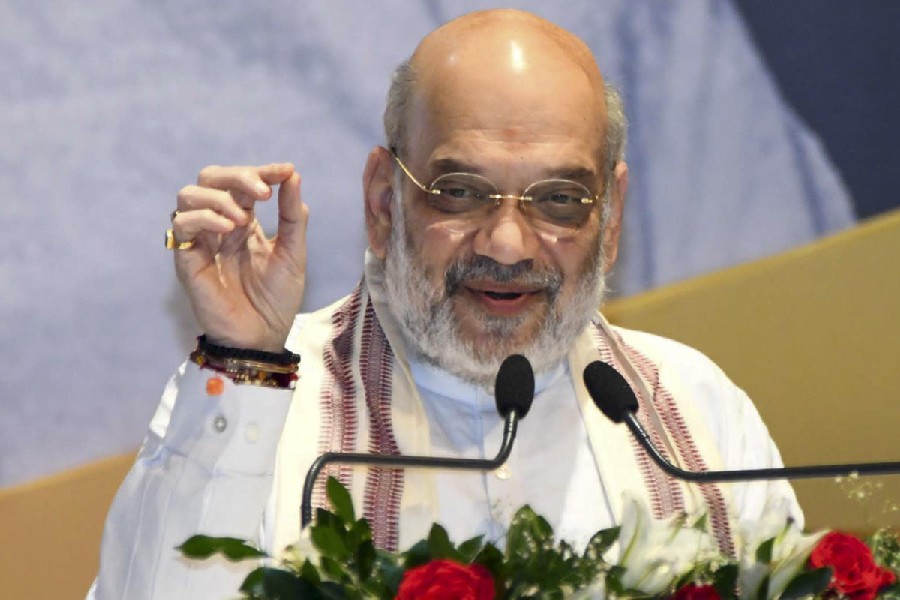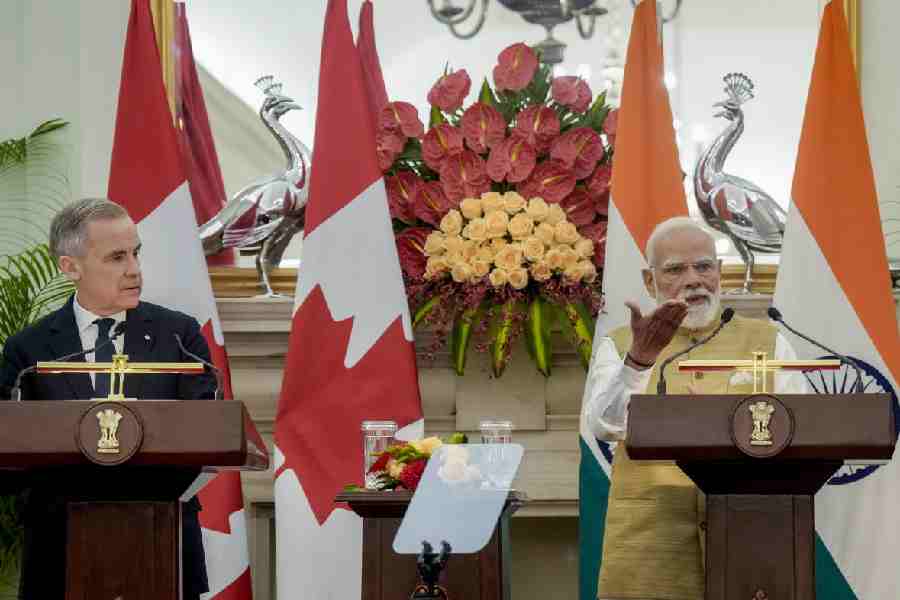 |
| No saviours: About 15km from the city, where a ban on animal sacrifice was declined, camels line up at Nine Mile cow market for sale before Id. Of the 40 animals brought from Rajasthan, 19 were sold on Friday, each fetching Rs 20,000-Rs 25,000. Picture by Eastern Projections |
Guwahati, Dec. 5: Gauhati High Court today declined to ban sacrifice of animals at religious places, saying any such order could have serious repercussions.
The Assam chapter of People for Animals (PFA), an NGO, had filed a public interest litigation,seeking a ban on sacrifice of animals at religious places and strict implementation of the Prevention of Cruelty to Animals Act, 1960.
Hearing the PIL, a division bench, comprising Chief Justice Jasti Chelameswar and Justice Iqbal Ahmed Ansari, stopped short of imposing the ban as it felt that judicial interference in religious practices could lead to “cultural clash”. The court suggested that the petitioner may modify the PIL by leaving out its plea for a ban on animal sacrifice at religious places.
“The high court expressed its unwillingness to interfere in animal sacrifices at temples and other places of worship. However, the court said it might consider our prayer for stricter implementation of the PCA Act if we modify our petition,” the chairperson of the Assam chapter of the PFA, Sangeeta Goswami, said.
The NGO is now contemplating moving the Supreme Court. “We fail to understand why the high court is unwilling to intervene in this issue,” she said, citing the ban on animal sacrifice in public view at the Kalighat temple by Calcutta High Court in 2006. “Sacrifice of animals has already been banned in states like Tamil Nadu, Andhra Pradesh and Karnataka,” she added.
The PFA had protested against the sacrifice of animals at the Kamakhya temple by Samajwadi Party legislator Kishore Samrite in July this year and by Nepal’s King Gyanendra in 2002.
“We want a ban on animal sacrifice in public places and places of worship because the archaic ritual involves bloodshed and a problem of hygiene. The directive principles of state policy (Article 51-g) states that as part of our fundamental duties, citizens of India need to have compassion for living creatures,” Goswami said.
In keeping with the high court stand, a senior government official said it would not be advisable to enforce a blanket ban on animal sacrifice in religious places, as it would interfere with the right to freedom of religion of those who believe animal sacrifice is an integral part of their faith.
He said the PCA Act granted exemption in case of sacrifice made for religious purpose. Quoting Section 28, he said, “Nothing contained in this act shall render it an offence to kill any animal in a manner required by the religion of any community.”











